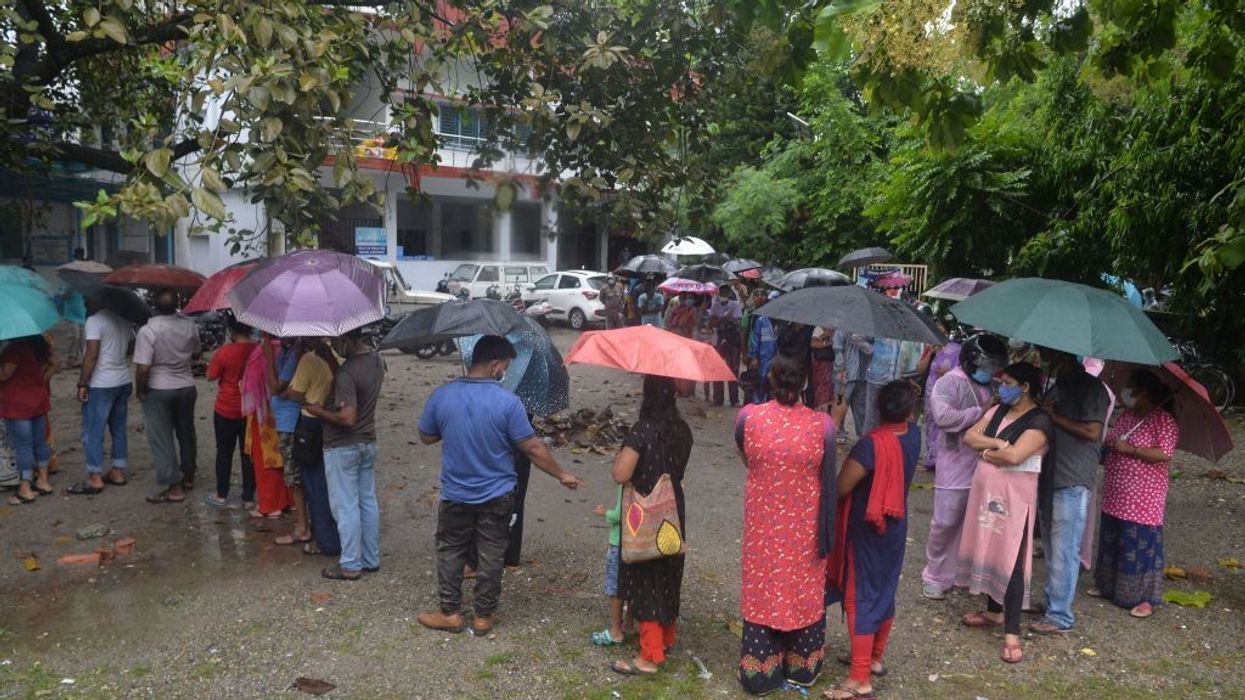A WORLDWIDE Covid-19 study led by UK experts and conducted in Indian hospitals among other global facilities, has won a Guinness World Records title for the world’s largest scientific collaboration.
Surgeon Aneel Bhangu, from the University of Birmingham, the study's co-lead author, said the research was aimed at improving understanding of the coronavirus.
The record for ‘Most authors on a single peer-reviewed academic paper’ is now held by the Universities of Birmingham and Edinburgh, after 15,025 scientists around the globe contributed to the major research into the impact of Covid-19 on surgical patients.
It involved more than 140,000 patients in 116 countries.
“Being awarded the Guinness world Records title for the worlds largest scientific collaboration highlights the scale of our global partnership, which aims to contribute to our understanding of Covid-19 and help to save as many lives as possible around the world,” said Bhangu.
“It marks the hard work of thousands of medical colleagues around the world to understand the changes needed in how surgery must be delivered if we are to beat the virus and reduce its impact on surgical patients,” he added.
Funded by the UK government’s National Institute of Health Research (NIHR), the research concluded that patients waiting for elective surgery should be treated as a vulnerable group and have access to Covid-19 vaccines ahead of the general population – potentially helping to avoid thousands of post-operative deaths linked to the virus.
This was seen as particularly important for low- and middle-income Countries (LMICs), where access to vaccination remains limited. Vaccination is also likely to decrease post-operative pulmonary complications, reducing intensive care use and overall healthcare costs.
Overall, the scientists estimated that global prioritisation of pre-operative vaccination for elective patients could prevent an additional 58,687 Covid-19-related deaths in one year.
The COVIDSurg Collaborative team of researchers published their findings in the British Journal of Surgery (BJS), Europe’s leading surgical journal, after studying data from 1,667 hospitals in countries including India, the UK, Australia, Brazil, China, the UAE and the US.
In India, the study was conducted across 56 hospitals – among the largest alongside Germany and Italy.
Researchers also explored the timing of surgery after Covid infection, pre-operative isolation, and risks of blood clots, the results of which were published in the fieldleading journal Anaesthesia.
According to the experts, during the first wave of the pandemic, up to 70 per cent of elective surgeries were postponed, resulting in an estimated 28 million procedures being delayed or cancelled.
While surgery volumes have started to recover in many countries, ongoing disruption is likely to continue in 2021, particularly in the event of countries battling further waves of Covid-19, the experts said.





